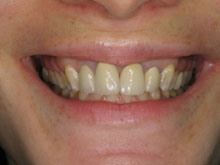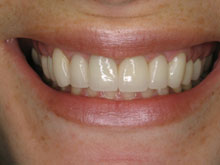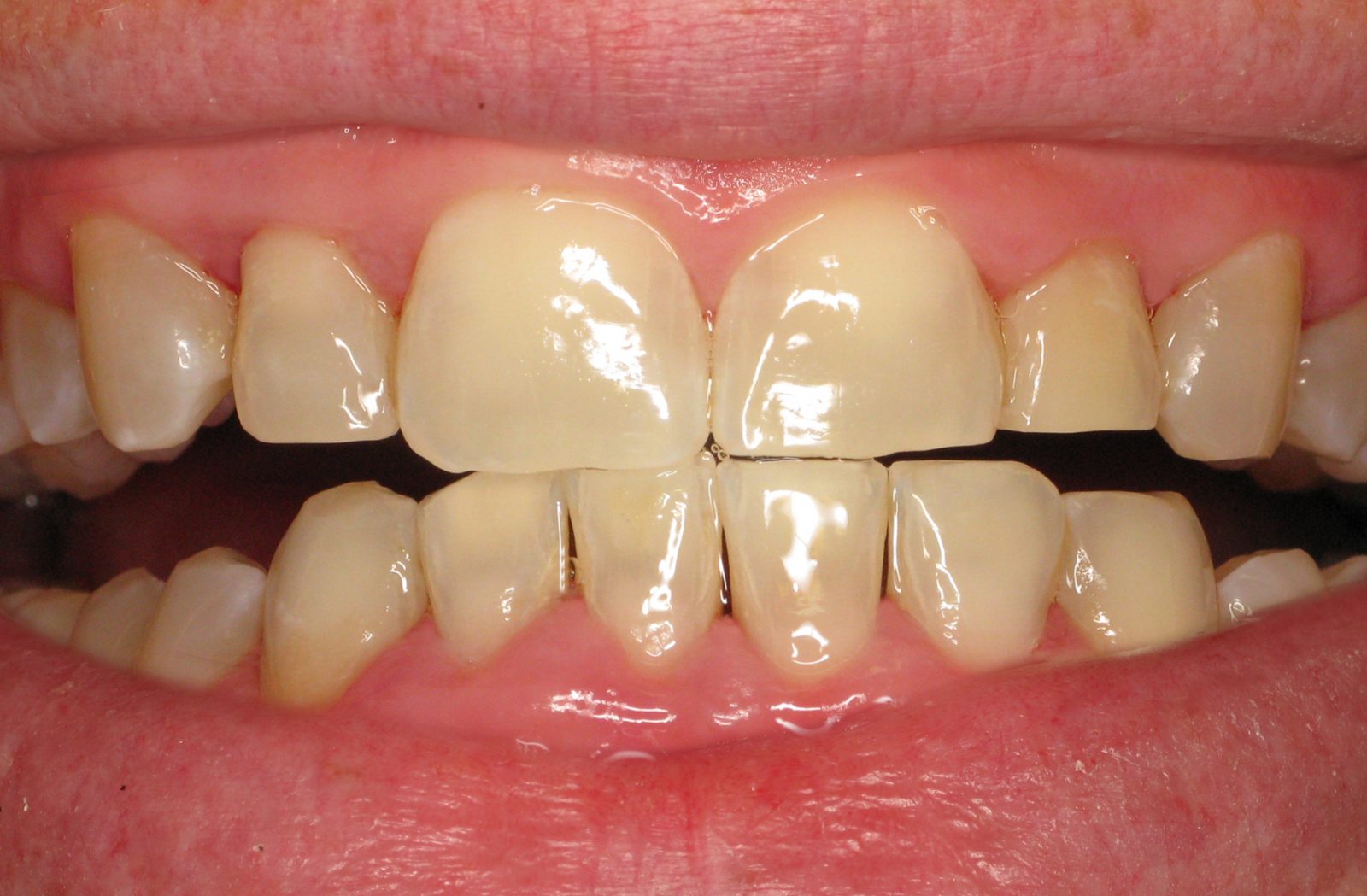Gum Disease Symptoms: Swelling of Gums
Swelling of gums is a concerning symptom often associated with gum disease, indicating underlying inflammation and potential oral health issues. When gums appear swollen, tender, or puffy, it’s typically an indication of an inflammatory response caused by bacteria in plaque buildup along the gumline. This symptom, if left unaddressed, can signal the progression of gum disease.
Laser Periodontics & Gum Surgery specializes in comprehensive treatments for various periodontal disease symptoms, including gum swelling. Our advanced techniques, such as laser periodontal therapy and personalized care plans, are tailored to alleviate gum swelling, manage periodontal disease, and restore optimal gum health. Understanding the symptoms of gum disease, including gum swelling, is crucial for timely intervention, and seeking professional care is essential in managing these concerns effectively.
Can Swelling Be Caused by Gum Disease?
Swelling of the gums can indeed be caused by gum disease. Gum disease, or periodontal disease, encompasses various conditions that affect the gums and supporting structures of the teeth. When bacteria accumulate in plaque along the gumline, it can trigger an inflammatory response in the gums, leading to swelling, tenderness, and redness.
Gingivitis, the early stage of gum disease, often manifests with symptoms like gum swelling due to plaque buildup, which irritates the gums. If left untreated, gingivitis can progress to more advanced stages of periodontal disease, such as periodontitis. In periodontitis, the inflammation caused by bacteria can lead to more severe swelling, gum recession, and potential damage to the supporting structures of the teeth, including the bone.
Swelling of the gums in gum disease occurs due to the body’s immune response to bacterial infection. The swollen gums may appear puffy, tender, and sometimes bleed, especially during brushing or flossing.
Addressing gum swelling requires professional intervention, including scaling and root planing, laser periodontal therapy, and meticulous oral hygiene practices. Seeking timely care from a dental professional is crucial in managing gum disease symptoms like swelling and preventing its progression to more severe forms. Regular dental check-ups are essential for monitoring gum health and ensuring prompt treatment to maintain optimal oral well-being.
What factors contribute to bacterial infection and plaque accumulation?
Several factors contribute to bacterial infection and plaque accumulation in the mouth, leading to gum disease and other oral health issues. These factors include:
- Poor Oral Hygiene: Inadequate brushing and flossing allow plaque—a sticky film of bacteria—to build up on teeth and gums. When not removed regularly, plaque hardens into tartar, providing a conducive environment for bacterial growth and leading to gum inflammation and infections.
- Unhealthy Habits: Smoking and tobacco use compromise oral health by weakening the immune system and contributing to plaque buildup. Additionally, these habits reduce blood flow to the gums, hindering their ability to fight off infection and heal properly.
- Dietary Choices: Consuming sugary or starchy foods promotes bacterial growth in the mouth. Bacteria thrive on sugars and carbohydrates, contributing to plaque formation. Poor nutrition weakens the immune system, making it harder for the body to combat infections.
- Genetics: Genetic factors may make Some individuals more susceptible to gum disease. Genetic variations can affect the body’s response to bacterial infections and its ability to fight off gum disease.
- Hormonal Changes: Hormonal fluctuations during puberty, pregnancy, or menopause can increase the risk of gum sensitivity and inflammation, making gums more susceptible to infection and plaque accumulation.
- Medical Conditions: Conditions like diabetes or immune system disorders can compromise the body’s ability to fight infections, including those in the gums. Individuals with these conditions are at a higher risk of developing gum disease.
How does gingival inflammation (gingivitis) lead to swelling?
Gingival inflammation, commonly known as gingivitis, can progress and result in swelling of the gums due to the body’s response to bacterial plaque buildup along the gumline. When plaque—a sticky film containing bacteria—is not effectively removed through proper oral hygiene practices, it accumulates, leading to bacterial proliferation. This bacterial invasion triggers an immune response, causing the gums to become red, swollen, and tender. The body’s attempt to combat the bacteria results in increased blood flow to the affected area, leading to the characteristic swelling of the gums.
As gingivitis progresses, the swelling may become more pronounced, causing discomfort and an enlarged appearance of the gum tissues. This swelling, accompanied by redness and tenderness, signifies an early stage of gum disease. Timely intervention through professional dental care, such as scaling and root planing, is crucial in addressing gingival inflammation, reducing swelling, and preventing the progression of gum disease to more advanced stages. Regular dental check-ups and meticulous oral hygiene routines are pivotal in managing gingivitis and maintaining optimal gum health.
What role do poor oral hygiene habits play in causing gum swelling?
Poor oral hygiene habits significantly contribute to gum swelling by allowing plaque—a bacterial film—to accumulate along the gumline and teeth. When individuals neglect proper oral care routines such as brushing, flossing, and regular dental check-ups, plaque buildup occurs, creating an environment for bacterial proliferation. The bacteria in plaque produce toxins that irritate the gums, triggering an inflammatory response. Over time, this inflammation can lead to redness, tenderness, and swelling of the gums.
Persistent neglect of oral hygiene allows plaque to harden into tartar, further exacerbating gum swelling and increasing the risk of developing gingivitis or more severe forms of gum disease. Inadequate oral hygiene also hampers the body’s ability to fight off bacterial infections in the gums, leading to prolonged inflammation and swelling. Proper oral hygiene practices, including regular brushing, flossing, and professional cleanings, prevent plaque buildup, reduce gum swelling, and maintain optimal gum health. Seeking timely dental care and good oral hygiene habits are crucial to preventing gum swelling and associated oral health issues.
Are hormonal changes or nutritional deficiencies linked to gum swelling?
Hormonal changes and nutritional deficiencies can contribute to gum swelling, exacerbating the risk of gum disease and other oral health issues.
- Hormonal Changes: Hormonal fluctuations, such as those occurring during puberty, menstruation, pregnancy, and menopause, can affect the body’s response to plaque buildup. Changes in hormone levels can make the gums more sensitive to irritants like bacteria in plaque, leading to an exaggerated inflammatory response. This heightened sensitivity may cause the gums to swell, become tender, and bleed more easily.
- Pregnancy: Pregnant individuals often experience hormonal changes that can lead to a condition known as pregnancy gingivitis. This condition manifests as gum swelling, tenderness, and an increased risk of gum disease due to hormonal shifts that make the gums more susceptible to plaque accumulation.
- Nutritional Deficiencies: Deficiencies in essential nutrients like vitamins C and B can weaken the body’s immune system and impair gum health. Vitamin C deficiency, in particular, can lead to scurvy, a condition characterized by swollen, bleeding gums. Insufficient intake of nutrients necessary for gum health can compromise the body’s ability to fight off infections and maintain healthy gum tissues, contributing to gum swelling.
Both hormonal changes and nutritional deficiencies can disrupt the normal balance of oral bacteria and the body’s immune response, making the gums more vulnerable to inflammation and swelling. Maintaining a balanced diet rich in essential nutrients, practicing good oral hygiene habits, and seeking regular dental check-ups are vital in mitigating the effects of hormonal changes and nutritional deficiencies on gum health. Professional dental care can help address gum swelling caused by hormonal fluctuations or deficiencies, ensuring optimal gum health and preventing the progression of gum disease.
Experienced, professional gum treatment. Offices in New York City, Long Island, Nutley, New Jersey.
Free screening visits will include the following: Oral exam/cancer screening, periodontal evaluation, your possible treatment options, and estimated costs.







